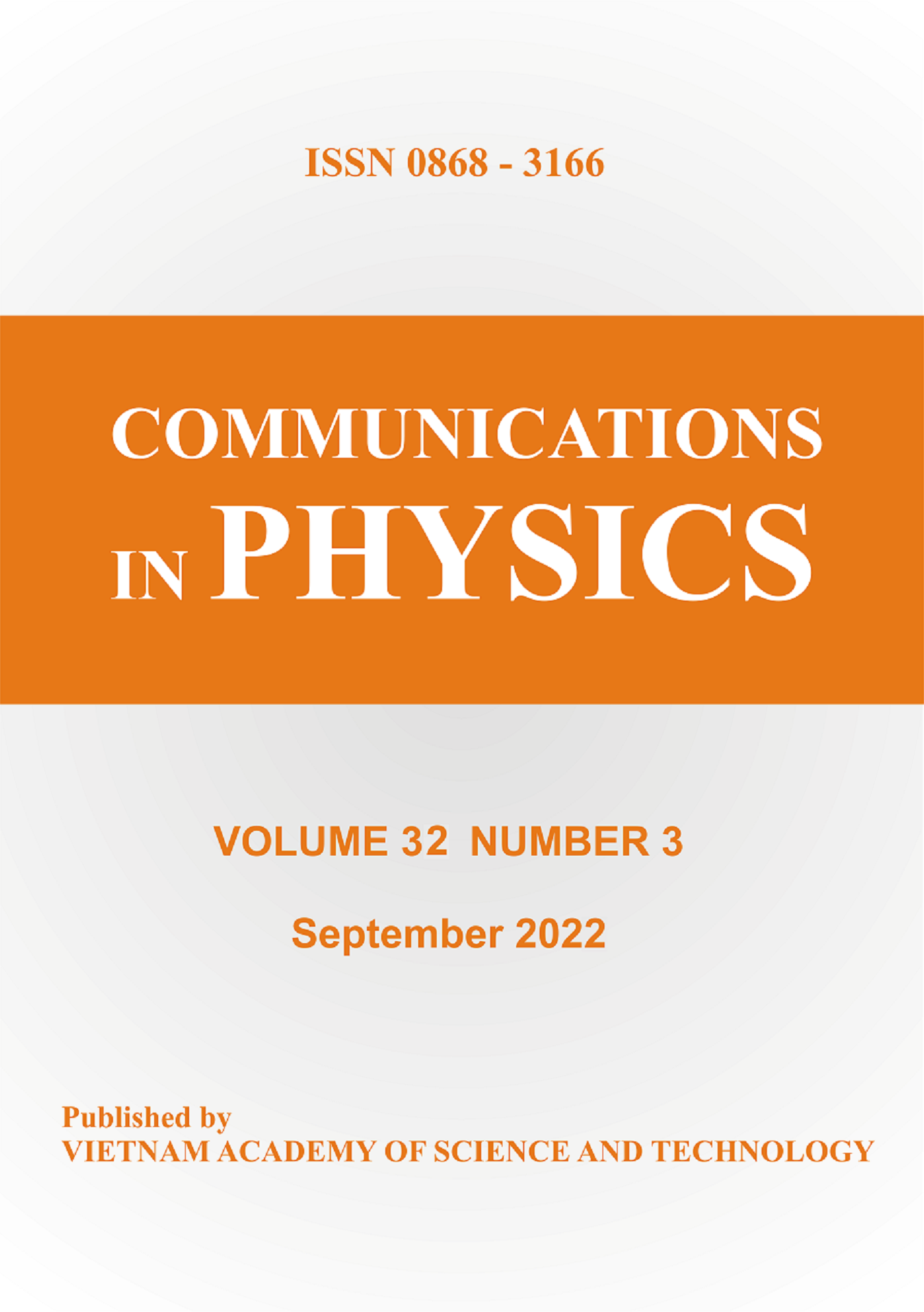Monte-Carlo Study of the Collective Behavior in Animal Group: A \(q\)-state Potts model
Author affiliations
DOI:
https://doi.org/10.15625/0868-3166/25/3/6418Abstract
We study in this work the phase transition behaviour of animal groups. We assume that the individuals in the group have two classes of state. One is the internal state which can be either excited or non-excited. The other one is characterized by their orientation or direction of motion, it is so called the external state.The internal state plays an important role in the rules of interaction between the individuals.The system is put under a source of external perturbation called ``noise", the individuals can freely move from one site to another site on a two-dimension triangular lattice. We use the Monte-Carlo simulation technique for studying the behavior of the model with varying noise. For simplicity, we consider the orientation of individuals which has $q$ states as in the Potts model. We show that the system has three phases which correspond to the uncollected, flocking and runaway behaviors at very low, medium and high noise, respectively. These phases are separated by two first-order transitions.Downloads
Downloads
Published
How to Cite
Issue
Section
License
Communications in Physics is licensed under a Creative Commons Attribution-ShareAlike 4.0 International License.
Copyright on any research article published in Communications in Physics is retained by the respective author(s), without restrictions. Authors grant VAST Journals System (VJS) a license to publish the article and identify itself as the original publisher. Upon author(s) by giving permission to Communications in Physics either via Communications in Physics portal or other channel to publish their research work in Communications in Physics agrees to all the terms and conditions of https://creativecommons.org/licenses/by-sa/4.0/ License and terms & condition set by VJS.







